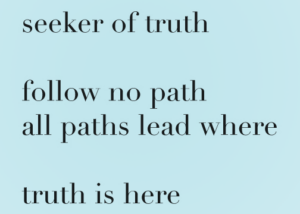Morality in the media?
Public engagement 14 March 2016
The 11th of March marks the 5 year anniversary since the nuclear disaster in Fukushima. Osman uses the opportunity to discuss the responsibility of the media and a moral obligation to represent truth.
It’s fairly clear that the popular opinion of nuclear power after the Fukushima incident of 2011 was quite negatively affected. A poll commissioned by the BBC in the immediate aftermath of the incident showed a significantly increased opposition to the building of new reactors in most countries. It’s hard to not equate this reaction from the public to the largely negative press surrounding the days after Fukushima. But these severe and very public safety concerns are quite at odds with the reality of the risk.

The World Nuclear Association contends that nuclear power is a safe means of energy generation, reporting a decreased risk of accidents year after year. A simple comparison of deaths per unit of electricity places nuclear far far below gas, coal and hydro power generation. Despite this, the BBC poll showed that in an average of 12 countries, 30% of people wanted all operating nuclear stations closed and only 22% wanted new power plants built; despite an increasing energy crisis and demand for carbon neutral technologies. So why is there such a disconnect between public perception and reality? To me, it’s obvious that the media must shoulder some blame for this eschewed view. Public perceptions and the media go hand in hand, media representations, especially when focusing on the few well known nuclear incidents, has been largely negative, helping shape public opinion to such an extent that political shifts can be made (see Germany’s response after Fukushima). The articles which come out after such incidents are sometimes quite inflammatory and can be scaremongering, meaning that many of the facts are lost. Nuclear certaintly isn’t alone in this regard, some media outlets have perpetuated a negative view of renewable energy in the past. These are critical and highly emotive issues, surely the media has a moral duty to accurately portray the facts surrounding such incidents, so that the public can obtain a less misleading and more accurate and informed view of nuclear energy – after all the media should serve the public interest.
Osman Aden is a Chemistry graduate working as a Publish Editor within sustainable energy.



Most news storied are written to gain maximum response or increase readership. This seems to translate into writing something that is ‘shocking’ or somehow negative. It seems that for some reason the British public quite like to read about the bad stuff. I wonder what came first – the appetite for terrible news from the general public or the desire by media to draw you in with disaster.
I also wonder what the researchers who contributed to various media articles actually thought about the information they came up with – this they disregard anything positive or did it actually stop and make them think?
How do the authorities communicate better if few people trust them and the media appears unwilling to co-operate?
Laura – I agree with you. I also find that in news articles that I have first hand information on and/or provided the information to the new media – they still twist what was said to “gain maximum response or increase readership”. I believe the most blame should be on the profit driven media and their unprofessional reporters/editors.
Laura and Joe, next month we are discussing exactly these things – well, almost. In what ways can we engage the public in important issues, or rather, what is the best way? Make sure you’re getting the emails (sign up to the right), I’d love to hear your thoughts once they’re up.